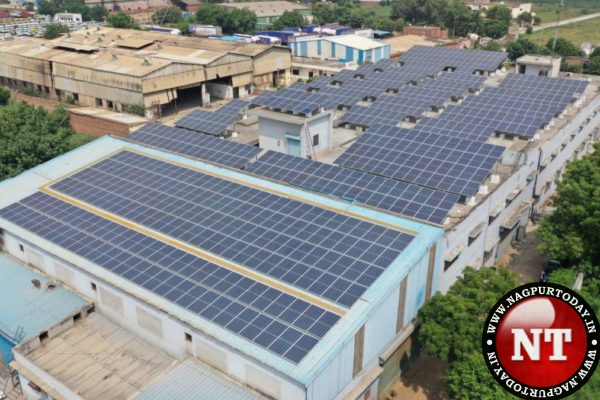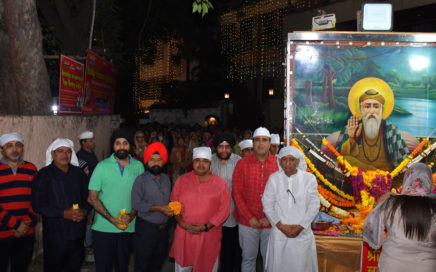Nagpur: The Maharashtra Energy Regulatory Commission (MERC) has recently introduced a groundbreaking amendment to the State’s rooftop solar policy, incorporating a novel concept known as Group Net Metering (GNM). This significant development aims to revolutionize the industrial segment within the State, offering new avenues for incentivizing solar energy adoption and utilization.
The key highlight of the revised policy is the introduction of Group Net Metering (GNM), enabling individuals with multiple establishments to leverage solar installations at one site and amalgamate other properties across different locations for net-metering benefits. Saket Suri, the Founder-Director of the All India Renewable Energy Association, hailed this notification by MERC as historically significant, projecting Maharashtra to emerge as a leading producer of rooftop solar power in the near future.
Explaining the concept of GNM, Suri emphasized its benefits, allowing consumers to generate power at one location and utilize it on-site while crediting excess power to the grid. This surplus energy can then offset the power consumption at other locations or multiple sites within the same DISCOM area. Notably, this system particularly benefits consumers with multiple consumption points, such as those owning commercial spaces and factories or warehouses across different locations.
MERC announced the Grid Interactive Rooftop Renewable Energy Generating System (First Amendment) Regulation 2023, aiming to rectify the current challenges associated with high tariffs, a prevalent concern for consumers with substantial energy consumption. The amendment raises the Net Metering Limit to 5 MW or contract demand (whichever is lower), significantly higher than the previous limit of 1 MW. This enhancement enables large power consumers to considerably reduce their bills by transferring excess power back to the grid.
Previously, significant power consumers encountered hurdles, especially when connecting their solar PV power plants behind the meter. This setup often led to power losses, notably during low-load periods or high power-generating hours, typically during midday or afternoon peaks and holidays.
The new policy addresses these challenges, providing a more flexible and beneficial framework for consumers to generate, utilize, and transfer surplus solar power within the grid, fostering a more sustainable and cost-effective energy ecosystem within Maharashtra’s industrial landscape. This proactive step is anticipated to retain and attract industries within the state, further strengthening its position in the renewable energy landscape.
















